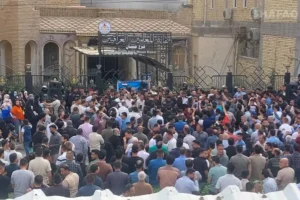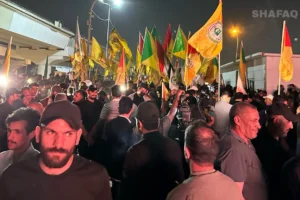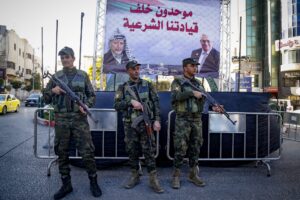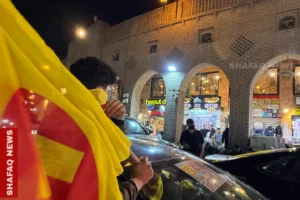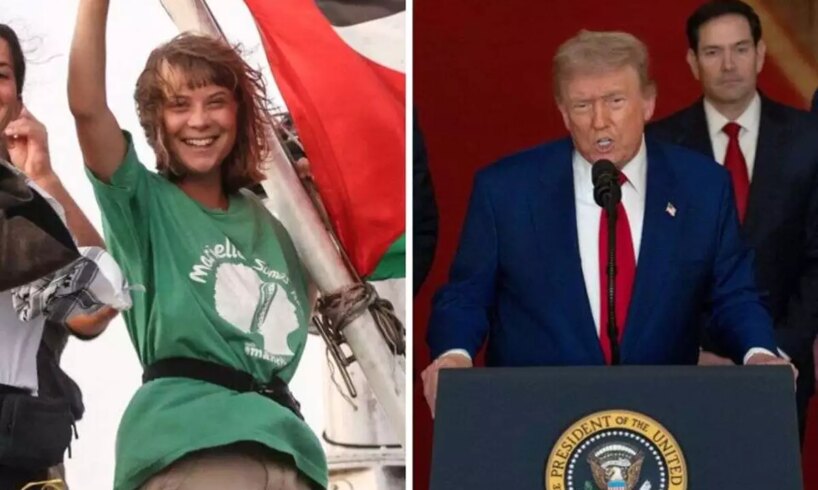
Is President Donald Trump on his way to receiving the Nobel Peace Prize? After a series of significant diplomatic achievements and dramatic progress in negotiations between Israel and Hamas on hostage release and ending the war in Gaza, the American president is convinced the time has come to be officially recognized as the 21st century’s “peacemaker.”
Unlike his predecessor, former president Barack Obama, who received the prize in 2009 “before he did anything,” Trump claims he has a list of concrete achievements to present: “If I were named Obama, I would have had the Nobel Prize given to me in 10 seconds. They will never give me a Nobel Peace Prize. It’s too bad. I deserve it, but they will never give it to me.”
Since returning to the White House, Trump claims he has managed to “end seven wars,” including the conflicts between Israel and Iran, Armenia and Azerbaijan, Cambodia and Thailand, Rwanda and the Democratic Republic of Congo, India and Pakistan, Serbia and Kosovo, as well as Egypt and Ethiopia. In some arenas, his contribution is controversial, but in some, these are real breakthroughs, even in the eyes of his political opponents.
The Middle East: Bombing Iran and the Abraham Accords
In the Middle East, the president prides himself on bringing “peace” through bombing Iran’s nuclear facilities, an operation he says was “perfect” and brought an end to the “12-day war” that began with the launch of Operation Rising Lion. But the campaign between the two countries, as is known, has not yet reached its end, and Iran has not declared it intends to give up its nuclear aspirations despite the heavy sanctions being imposed on the ayatollahs’ regime.
During his previous visit to Washington in July, Prime Minister Benjamin Netanyahu even announced to the president that he had recommended him for the Nobel Prize due to establishing the Abraham Accords between Israel and the United Arab Emirates, Bahrain, Morocco, and Sudan during his previous term.
Armenia-Azerbaijan: Historic peace in the Caucasus
The latest achievement, which occurred in early August, is the end of the historic conflict over Nagorno-Karabakh, which had lasted almost 40 years. After the conquest of the region by Azerbaijan in 2023, while creating a wave of Armenian refugees, Trump hosted Armenian Prime Minister Nikol Pashinyan and Azerbaijani President Ilham Aliyev at the White House for signing a peace declaration, which is supposed to pave the way for a full peace agreement. The two leaders even publicly declared during the ceremony that they would jointly advance Trump’s candidacy for the Nobel.
Cambodia-Thailand: A phone call from vacation
An escalation on the border between Cambodia and Thailand in July, over control of an ancient temple, quickly turned into artillery battles. Trump, who was then on a golf vacation in Scotland, called both leaders and offered significant customs relief to both countries, an offer that led to an immediate ceasefire. Cambodia’s prime minister noted in August that he had submitted the president’s candidacy for the Nobel.
Rwanda-Congo: Gold mining for peace
The murderous war between Rwanda and the Democratic Republic of Congo, which has continued intermittently for more than a quarter century, recently included raids by M23 rebels from Rwanda into Congo. The current round ended after Trump promised American investments in the mineral-rich Kivu region in exchange for stopping the fighting. A formal peace agreement was signed at the White House on June 27. Trump presented this as a personal achievement: “This is one of the hardest wars the world has known, and we stopped it.”
India-Pakistan: Ceasefire in the mountains
In April this year, a terror attack in Kashmir led to exchanges of fire and airstrikes between the two nuclear powers. Trump intervened in intensive overnight negotiations, and on May 10, a full ceasefire was announced. Pakistan hurried to thank him and submitted his candidacy for the Nobel Prize, but Indian Prime Minister Narendra Modi claimed that Trump “exaggerated in describing his part.”
Serbia and Kosovo: Gap between words and reality
Trump presents himself as having “ended the war between Serbia and Kosovo,” but in practice, his contribution was mainly symbolic. In 2020, he mediated an economic agreement in Washington aimed at strengthening cooperation, but it did not include a political or security component. Since then, dialogue has collapsed, confrontations have erupted in northern Kosovo, and sanctions have been imposed on Pristina. Despite his declarations, the conflict continues, and relations between the sides have even deteriorated.
Egypt and Ethiopia: The dam war that wasn’t
Trump tends to claim he ended the conflict between Egypt and Ethiopia, but in practice, the two have never been in a state of war. The dispute between them concerns the Ethiopian “Renaissance Dam” – a massive hydroelectric project that was built over approximately 15 years and recently inaugurated. Ethiopia sees it as key to economic prosperity, while Egypt and Sudan oppose it, fearing damage to the water supply downstream on the Nile. Donald Trump’s involvement in the conflict between Egypt and Ethiopia primarily focused on brief American mediation regarding the dam issue during his first term, but it did not lead to a permanent settlement.
A Nobel medal is seen at the Swedish ambassador’s residence in London, Dec. 8, 2020 (Photo: Niklas Halle’n/AP) AP
Behind the scenes – how is a winner chosen?
Trump is clear that the path to winning is paved with political suspicion. “They won’t give me a Nobel Peace Prize because they only give it to liberals,” he claimed. The president’s supporters compare his achievements to those of Obama, who received the prize at the beginning of his term “for good intentions” alone, despite his policy including serious mistakes in Syria, Libya, and in relations with Russia.
According to the rules, any head of state, minister, member of parliament, professor in social sciences or law, or a previous Nobel Prize winner may submit a candidacy. This year, 338 names were submitted, of which 244 individuals and 94 organizations. Details about the candidacies are kept secret for 50 years. The process includes initial screening in February, examination of candidates on a shortlist between March and August, and final selection on October 10 by the five members of the Norwegian committee. The ceremony is expected to be held on December 10 in Oslo.
It’s worth noting that the deadline for submitting candidacies for the 2025 Nobel Prize expired already in January, and procedurally, candidacies submitted after the deadline, including those of various leaders for Trump, are expected to be included only next year.
According to betting sites, Donald Trump is ranked far behind the leading candidates to win the Nobel Peace Prize in 2025. For example, on the Polymarket site, his chances stand at only about 4%, and similarly on the Kalshi platform, far behind the three main candidates: Sudan’s emergency organizations (28%), Mediterranean rescue organizations (27%,) and Greta Thunberg (22%). In other words, even though Trump is considered a publicly prominent candidate, in prediction-based betting markets, he remains a marginal player, with low chances of winning the coveted prize.
Meanwhile, the president is applying his full weight to release the hostages and end the war in Gaza, an achievement that will certainly contribute to his significant but controversial record, while negotiations to end the war in Ukraine are currently at a standstill. Trump continues to present himself as a determined “conflict solver,” hoping that the five Norwegians will determine this is not just rhetoric, but also a legacy that will be recorded in the history books.


